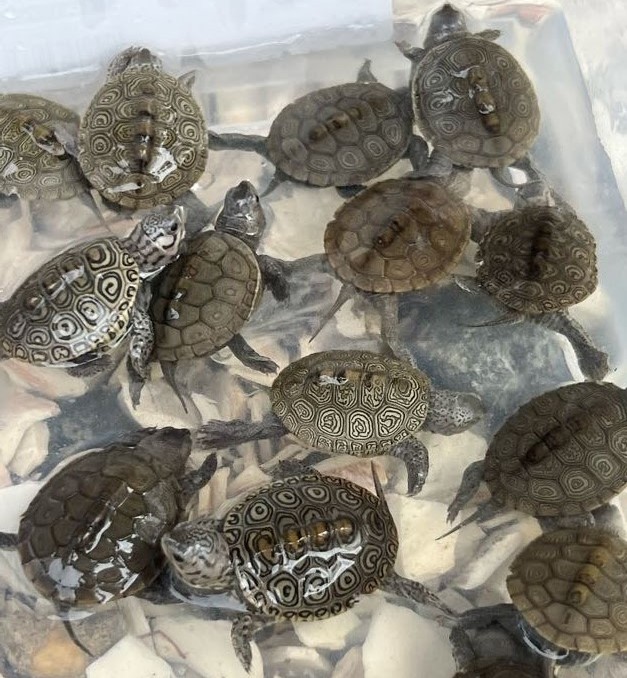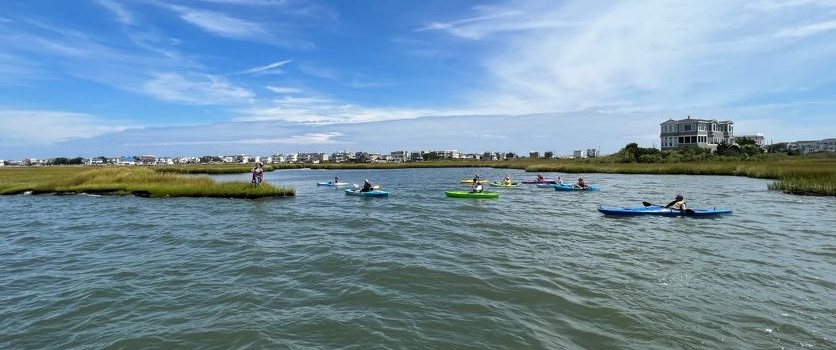On August 30th, New Jersey Bay Islands Initiative members gathered for our second annual field trip at the Long Beach Twp Marine Field Station. The group shared in learning about the Bay Islands’ plight and how Clam Cove Island has changed over time. Our day was packed with fun as members participated in a relaxing kayak trip and gave informative presentations about the islands in Barnegat Bay!

Bay islands like Clam Cove Island are integral to our ecosystem, as they have the ability to reduce the amount of wave action affecting residential areas. They also house important local wildlife like terrapins, mussels, marsh grasses, sand crabs, and plenty of other unique species. Ultimately, the degradation of these islands have dire effects on our local ecology and neighbors alike.
Our group also had the amazing opportunity to release terrapin hatchlings born and raised at the Marine Field Station! In New Jersey, terrapins are listed as a species of special concern, so raising and releasing hatchlings at the Station helps ensure survival and boost the local populations. In more ways than one, we were able to connect to the environment during this trip!

Whilst on our kayaks and pontoon boat, we observed the changes that were occurring on Clam Cove Island. Originally not an island, Clam Cove was a peninsula off Long Beach Island in Barnegat Bay. The Cove became an island partly due to years of erosion, creating a shortcut through the peninsula and into the cove, commonly known as “the cut”. The following image shows our group going through “the cut”.

This also formed because the struggling ecology could not keep up with the changing environment. Species such as the Atlantic Ribbed Mussel and Spartina alterniflora (the prevalent marsh grass) support the island’s structure by creating sticky threads and roots that hold sediment together. Now, they are struggling to survive due to rising temperatures and water levels among other environmental shifts. Factors such as these kill off essential marsh grasses and increase predation on mussels. Without these keystone species like these, the islands begin to fall apart. Witnessing these changes take place may be disheartening, but the NJBII group exists to work towards remedying this issue. Through the hard work of all the individuals observing and researching these islands, we will be able to make a change!